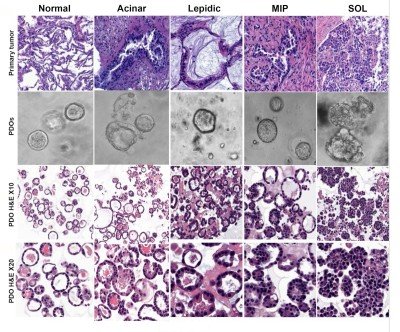A limitation of patient-derived xenograft (PDX) models is their inability to develop metastases. To address this limitation, we successfully developed a LUAD patient-derived organoid (PDO) platform. All PDOs are clinically and genomically (MSK-IMPACT) annotated. Preservation of histologic architecture and concordant genomic and transcriptomic profiles between the primary tumor and corresponding PDO were confirmed by our pathologists and WGS and RNA-seq, respectively. To explore if LUAD PDOs possess metastatic potential, we developed an in vivo PDO intracardiac injection metastatic model, and observed that individual PDOs exhibit distinct metastatic capabilities. Our recent focus is to leverage the power of PDOs in examining LUAD metastases in vivo, as well as exploring therapeutic vulnerabilities, including immune-priming strategies for individual patient tumors. We collaborate with the MSKCC Center for Molecular Oncology, Animal Imaging, IGO, Anti-Tumor Assessment, and Pathology.
